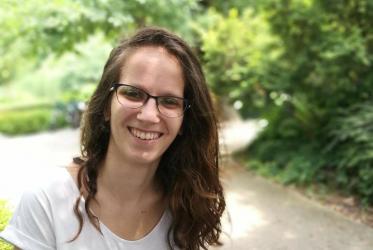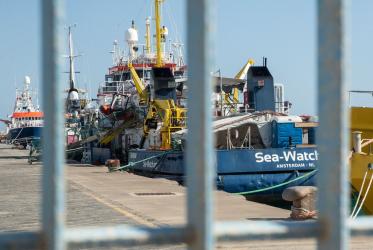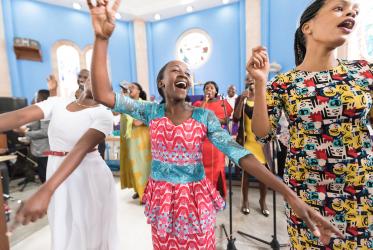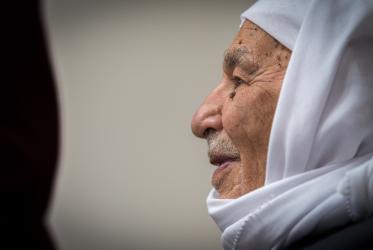Displaying 81 - 100 of 365
16 September 2019
Solidarity in aiding migrants informs upcoming week of prayer for unity
12 September 2019
Iraqi refugee shares story of hope through harrowing ordeal
15 August 2019
How will the Arusha Call change the world?
20 May 2019
‘European humanitarian corridor’ proposed
02 May 2019
A faith-based, holistic approach to HIV and AIDS-care
13 March 2019
Faith and HIV treatment go hand in hand
06 March 2019














